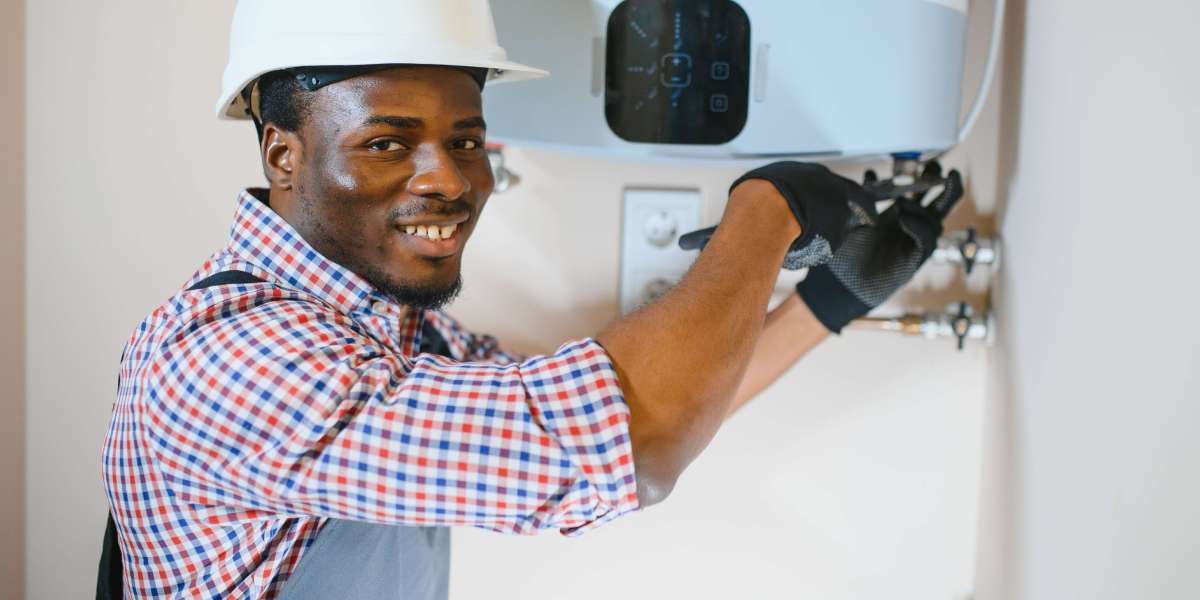If you're a landlord, it's important to understand your obligations when it comes to the safety of gas at your property. Gas Safety (Installation and Use) Regulations 1998, are a requirement for landlords.
You should arrange for your onsite appliances and flues to be examined each year by an Gas Safe registered engineer. You should also provide the gas safety certificate to every tenant.
What is a landlord gas safety certificate?
A gas safety certificate for a landlord is a legal document that a Gas Safe registered engineer gives to the owner of the property after conducting a safety inspection. This document should contain all information about the gas pipework of the property and appliances that have been inspected for safety. Landlords are legally accountable for ensuring that all of these things are in good operating order and to provide their tenants with copies of the document they have completed.
The law requires that every landlord has their property inspected and get an updated gas safety certificate every 12 months. The regulations require that landlords plan their inspections at least one month before expiration of the current certificate. This will prevent any lapse in coverage and provides the best possible protection for their tenants.
To obtain a landlord gas safety certificate You will need to arrange for an Gas Safe registered engineer to visit the property. The engineer will conduct an inspection of all of the gas appliances and installation pipework within the property. The engineer will also test the appliance's emergency controls. If any of the appliances are deemed to be hazardous the engineer will inform you on the correct work required to bring them back up to standards and issue an updated gas safety certificate.
If a tenant is refusing allow access for the inspection, the landlord could attempt to persuade them to allow the inspection by sending a strongly worded letter that explains why they should have the inspections to be conducted and what will happen in the event they refuse to allow them to enter. If this fails the landlord should look into initiating the eviction process by sending them the Section 21 notice.
Your tenants must receive a copy of a completed Landlord Gas Safety Record, within 28 days after each inspection. This must be provided to existing tenants, as well as any new tenants prior to when they move into the property. It is also necessary to keep the original records for a period of 2 years.
What is a tenant gas safety certificate?
Generally speaking, landlords should ensure that all MK Gas Safety appliances that are in their property are tested annually by an Gas Safe registered engineer. The cost of the test can range from PS60 to PS120 depending on the nature of the test. The engineer will give an CP12 to the landlord following the inspection. The document is required to be handed out to tenants in four weeks after the test is completed. The document is a record that must be kept by the landlord two years following the date of the initial inspection. It is recommended to keep them online in order to reduce waste.
The landlords must also ensure that they have access to the property for annual gas safety and service checks. The law stipulates that if the tenant refuses access, the landlord has to use reasonable measures to gain entry and complete the inspection. This may include writing to them, requesting them to contact the engineer directly, and repeating requests for entry. It could also involve calling the local council, who might be able to send an official round to explain the necessity of granting access for maintenance and safety checks.
If the tenant does not allow access and the landlord is considering eviction. It is the landlord's legal right to evict tenants who refuse to cooperate with safety checks. Landlords should seek legal advice prior to taking this action as it may be difficult.
The landlord is responsible for all gas pipework and flues, appliances and other equipment they own and supply to tenants. This is the case even if the property has been completely or partially sub-leased by the landlord to third parties. However, the original landlord and any other person who takes on the responsibility through contractual arrangements should cooperate, with a clear allocation of responsibilities, to ensure that the statutory requirements are fully met.
If a landlord has hired the services of an agent managing their rental properties, it is important to find out who is responsible for arranging the gas safety tests. Certain agents will assume this responsibility, but you should check with the agency to confirm that you are covered.
What is a sub-let gas safety certificate?
If a landlord leases their property they need to make sure that it is safe for those living there. Gas safety certificates prove that all gas appliances and flues have been inspected by a certified engineer and deemed safe. The landlord is responsible for ensuring that gas safety checks are conducted every year, and copies of the certificates are handed out to tenants. The checks must be conducted by a Gas Safe registered engineer. The CP12 form must contain the Gas Safe engineer's ID number and the date of issue.
The landlord must also provide the tenants the copy of the gas certificate within 28 days following the conclusion of any checks. Similarly, they must give new tenants a copy the CP12 form prior to moving into the property.
There are some exceptions to this rule however, in the case of a property being used for short-term lets like holiday cottages for students or student housing. It's recommended to include information about these exemptions in your tenancy contract, because it will save you a lot of stress and potential legal issues in the future.
If a landlord discovers their appliances or flues do not meet safety standards during an inspection, he should fix them as soon as possible. This may require the disconnection and reconnection of the gas supply. Landlords should ensure that their gas engineers are registered with Gas Safe registration and verify their identity with a photo ID prior to carrying out any work.
Despite the exemptions mentioned above, the regulations around gas safety checks for landlords and landlords are very strict and must be followed. If the landlord is found to be in violation of the regulations they could be prosecuted and face fines or even prison sentences.
Total Landlord is here to help you if you're a landlord who needs to arrange an inspection for gas safety. We have a network of Gas Safe engineers who can visit your property, carry out a full inspection and provide you with the CP12 gas safety certificate. We offer competitive rates and same-day service in the event of an emergency. For more information, give us a a call or visit our website today.
What is an annual gas safety inspection?
If you lease out a part or all of your home, it's your legal obligation to conduct an annual gas safety inspection. This includes checking the boiler and other gas appliances, including pipes and flues and any fittings and fixtures that utilize or exhaust gas.
A trained Gas Safe engineer will inspect your property and make sure that everything is up-to-date and safe. They will examine the flues and gas appliances and look for signs of carbon monoxide poisoning or leaks. They will also make sure that the gas is on and that the gas meter is topped up.
After the inspection and the examination, it's a good idea to give an original copy of your gas safety report to your tenants. The record must be handed out to tenants who are currently tenants within 28 days, and to any new tenants before they move in. It is also recommended to keep an original copy of the gas safety record for yourself and any agents you employ.
Landlords are responsible for organizing and paying for gas safety inspections and certificates for their properties. If a tenant refuses access to allow the check or maintenance work to be completed the landlord must take reasonable steps' to gain entry. You could write an explanation in a letter of why you have to gain access to the property and the safety checks involved. If the tenant continues to refuse, you can consider starting an Section 21 eviction process.
Your annual gas safety check is included in your Hometree landlord insurance policy. You don't need to worry about arranging it separately, or when you'll have to do it. You can also rest assured that we've got your back should you need to renew your insurance or amend any details.
 For more information on our insurance for landlords you can visit the Hometree website. Sign up for an estimate to find out more about the coverage and price. Our guarantee of no price hikes means that you will not pay more for your annual premium than the inflation rate of the first year.
For more information on our insurance for landlords you can visit the Hometree website. Sign up for an estimate to find out more about the coverage and price. Our guarantee of no price hikes means that you will not pay more for your annual premium than the inflation rate of the first year.







